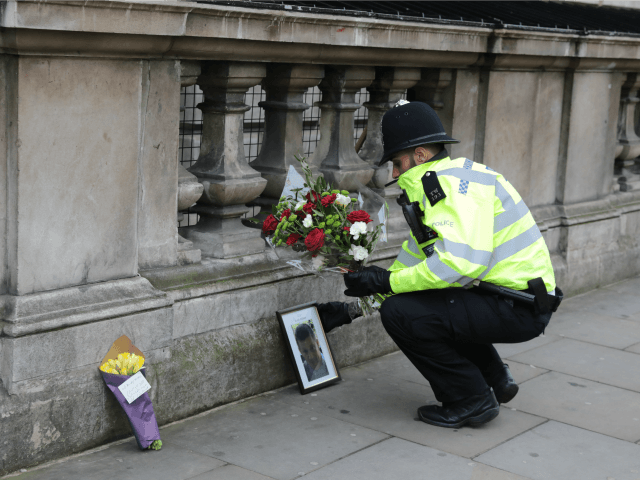Dr. Alan Mendoza, founder and executive director of the Henry Jackson Society, said the 22 March terrorist attack in Westminster follows “the modus operandi of ISIS-related attacks” in the weaponisation of vehicles.
Dr. Mendoza was speaking to Breitbart London Editor in Chief Raheem Kassam on Breitbart News Daily on Sirius XM Patriot.
“To your mind, when you saw the attack unfold, what was the first thing that came to your mind in terms of who the perpetrator of such an attack might be?” asked Kassam. “Did it say ‘radical Buddhist’?”
Mendoza, who watched the aftermath of the attack develop from offices in Millbank Tower – one of the few high-rise buildings in Westminster – indicated the likely culprits for such attacks in the UK are typically associated with radical Islam or the far right.
However, Dr. Mendoza felt that events in Westminster appeared to follow “the modus operandi of ISIS-related attacks”, in which the weaponisation of everyday vehicles is increasingly common.
Breitbart London deputy editor Oliver Lane wrote about automobiles becoming “the weapon of choice for Islamist killers” as long ago as July 2016 – before the Christmas market attack in Berlin, which was perpetrated by a failed asylum seeker in a hijacked lorry.
Kassam also asked Mendoza why the authorities might be asking the press not to reveal the name of the suspect, should they come across it, suggesting there seems to be a longer and longer delay before suspects are named following terror events.
“I suspect the reason is that they wish to make arrests as quickly as possible … and not be distracted by discussions about the attacker,” Dr. Mendoza said.
He explained that terrorists of this sort typically belong to networks, and “tipping people off that it was x person” might drive people associated with these networks underground.
Dr. Mendoza indicated it was important not only to track down direct accomplices, but also past associates, figures who may have played a role in the radicalisation process, and so on.
Kassam and Mendoza also discussed an individual who was briefly and erroneously named as the suspect by Channel 4 News, later confirmed as currently being in prison for terrorism offences.
Earlier @Channel4 journo criticised @DonaldJTrumpJr. Now his own employer is rowing back on "breaking" identity of #London attacker. https://t.co/ZNX9fXbJWu
— Raheem Kassam (@RaheemKassam) March 22, 2017
The individual in question was part of a “vast network” of British-based Islamists, well known to the police and the press. The network includes the likes of Anjem Choudary, the al-Muhajiroun co-founder imprisoned for urging Muslims to fight for Islamic State, and Abu Hamza, the notorious, hook-handed hate preacher of Finsbury Park mosque, extradited to the U.S. for his role in establishing a terrorist training camp in Bly, Oregon, among other charges.
Kassam asked Dr. Mendoza if he believed the networks associated with these Islamists continued to exist, despite many of their groups having been formally proscribed.
The think tank founder indicated that research by the Henry Jackson Society pointed towards estimates of “anywhere between 2,000 and 3,000 people” so dangerous that they require “active surveillance”, to say nothing of the individuals surrounding them.
This gives some indication of the scale of the problem which faces the United Kingdom regarding radical Islamic terrorism. However, Dr. Mendoza was not willing to credit the Westminster attacker with having “shut down” the capital.
“They’ve closed some roads. Life in Westminster is going on as before: Parliament’s meeting; everyone’s in their offices … I think that, by the way, is a testament to the British spirit.
“We’re not about to shut down the city in response to an attack of this kind. We will get on with business as usual; we’ve survived a lot worse.”

COMMENTS
Please let us know if you're having issues with commenting.